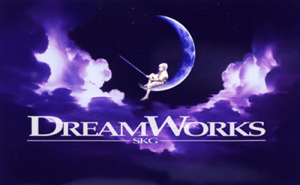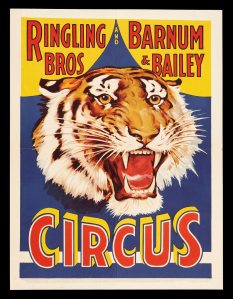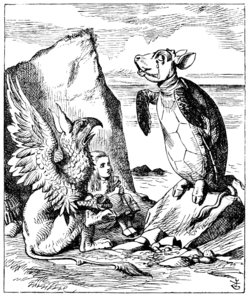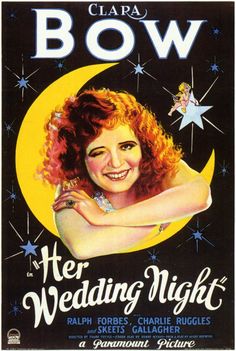Ever since a gig I did this summer at the Phoenix Picturehouse, where local musicians teamed up to perform iconic songs from films, I’ve been thinking a lot about lyrics that must have made perfect sense at the time they were written, but whose meaning has since descended into baffling obscurity. Old films are a great source of these oddities, and there are some good examples among the songs I performed that night.
One of my favourites is the jazz standard “Paper Moon”, originally written in 1933 for the catastrophically unsuccessful musical “The Great Magoo”. In the same year it appeared in a slightly more successful film version of the catastrophically unsuccessful musical “Take a Chance”. It was popularised by Ella Fitzgerald in the 1940s, and finally gave the title to the 1973 Oscar-winning film “Paper Moon”, about a father and daughter conman duo.

It’s a good song, proven by the fact that it managed to withstand such an inauspicious start, and the clever lyrics centre around the idea of the old-fashioned photo studio where customers would pose sitting on a giant crescent moon – something that everyone seemed to be completely obsessed with in the 20s and 30s, to the extent that it’s it seems to have entered into the cultural catalogue of iconic images from the era, and has even become the Dreamworks logo. But there’s one lyric that people always ask me about:
“It’s a Barnum and Bailey world
Just as phony as it could be
But it wouldn’t be make believe if you believed in me.”
What’s “Barnum and Bailey”?

Well, it turns out that the elusive Barnum and Bailey were actually 19th century circus owners, who ran the modestly titled “Greatest Show on Earth”, an iconic institution at the time. So to the 1930s listener, this would have been a universally recognizable reference to all that was showy and fantastical. It’s just one that’s got lost in the mists of time.
But when it comes to songwriting, it’s not a simple task to make your lyrics futureproof. After all, how can we know for sure which turns of phrase will last and which are simply lexical fads? Modern-sounding phrases like to “hang out” or to have “beef” with a wrongdoer have actually been in use since the 1920s (unfortunately for me, “old bean” appears to have stood the test of time rather less well).
Although I’m sure current chart hit “Hotline Bling” isn’t going to become a timeless classic any time soon.
But I digress.
Another example that I’ve (infuriatingly) never been able to get to the bottom of comes from the iconic 1954 film “White Christmas”. Quite apart from a completely baffling (and, for all I know, deeply racist) sequence in which they reminisce about the nebulous ins and outs of a “good old minstrel show”, a subject that was already nostalgic at the time, there’s this lyric in the third-act-dilemma torch song “Love, You Didn’t Do Right By Me”:
“Love, you didn’t do right by me
As they say in the song
You done me wrong.”
As they say in what song? Why are they even referring to another song within their own song? I can’t even find record of any songs called “You Done Me Wrong” that predate 1954! To use an oft-worn catchphrase, what does it all mean????

There must be countless lyrics like these whose meanings are lost forever, and still more that are simply passed off as nonsense or surrealist through lack of context. I only recently learned that the Mock Turtle in Alice in Wonderland isn’t just a whimsical flight of fancy, or a psychedelic product of Lewis Carroll’s opium-addled mind – well, it is, but it’s also a clever and topical play on words. In the book, the mock turtle is a creature with the body of a turtle, and the head, hooves and tail of a calf. And that’s no coincidence. While the super-rich of the Victorian era dined on real turtle soup, a much more common starter was mock turtle soup, made from – you guessed it – the head, hooves and tail of a calf. It doesn’t take much of a leap of imagination to picture this as an actual creature called the mock turtle. How many other insightful references have since been dismissed as nonsense verse?
(As an aside, I strongly suspect that a lot of David Bowie lyrics from the 1970s fall into this category. Although, he was taking a lot of drugs at the time, so I don’t think even he could tell us for sure.)

It also gets me thinking – what is it that gets some things remembered as icons, and other things that were equally popular at the time, if not more so, relegated to the cultural oubliette? The present day seems to have, magpie-like, selected almost at random a selection of films/ artists/ songs that they have decided are emblematic of the era, and ignored everything else, regardless of actual popularity at the time. I recently saw a documentary about the silent film actress Clara Bow, who was indisputably the Marilyn Monroe of her era: the inspiration for Betty Boop and the original “It” girl – but who has been retrospectively eclipsed by contemporaries like Greta Garbo.
So what is it that gets some songs remembered, and some forgotten? It’s not like they’re all incredibly specific 1970 – 80s novelty one-hit wonders like The Brat’s “Chalk Dust” (which is, in actual fact, still unaccountably entertaining). That’d be a good topic for a future post, actually – “Things That Were Really Popular At The Time But Have Since Been Completely Forgotten” – at least, it would be if anyone could remember them! Any suggestions, folks?
But there are always some lyrics that make perfect sense regardless of the era. I’ll leave you with a verse from the scandalously ribald “Willow’s Song” from The Wicker Man, pieced together by Paul Giovanni from ancient medieval verse:
“Fair maid, white and red
Comb you smooth and stroke your head.
How a maid can milk a bull
Mmmm-mmmm, and every stroke a bucketful.”
Ahem!

Barnum and Bailey still tours the US. It’s the one big circus still around after all these years. I saw it as a kid and it’s still going. In fact it’s the one circus that an american kid is likely to see.
LikeLike
Could The “done me wrong” reference be an oblique one to the song Frankie and Johnny?
Frankie and Johnny were lovers
Oh lordy, how they could love
Swore to be true to each other
Just as true as the stars above
He was her man, but he done her wrong
http://nickelsystems.com/lyrics/frankie_and_johnny.shtml
LikeLike